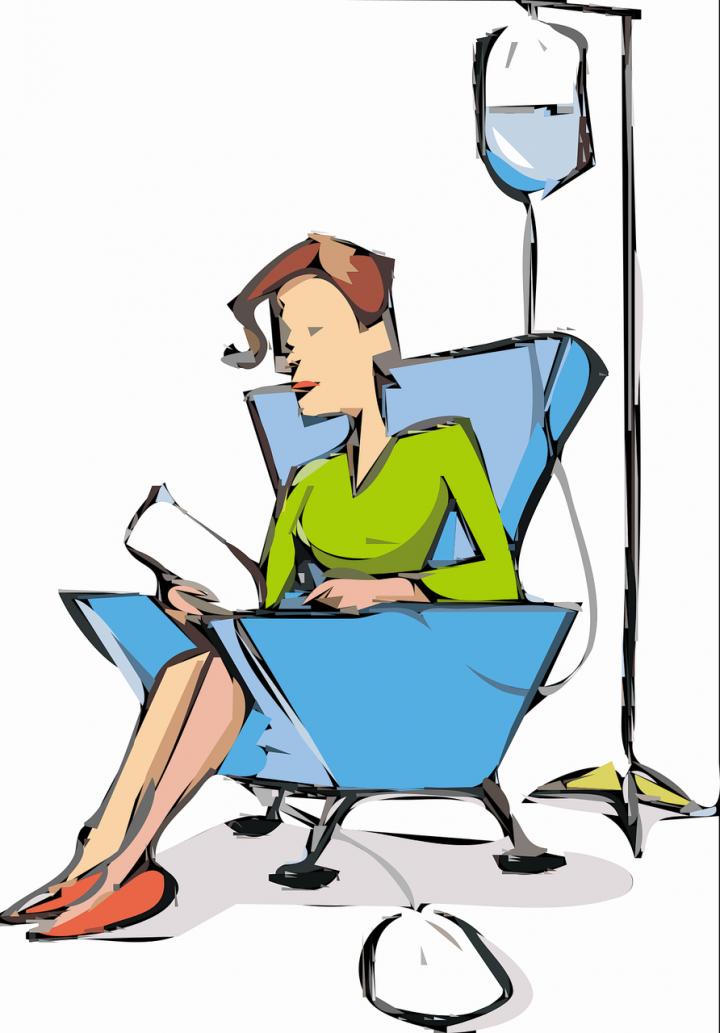
Credit: OpenClipart-Vectors, Pixabay
Anthracyclines remain a cornerstone of breast cancer therapy in combination with new-generation targeted drugs such as trastuzumab. Both types of drugs are major culprits in chemotherapy-induced heart disease. A recent study showed that being overweight or obese was a risk factor for cardiotoxicity in chemotherapy-treated patients with breast cancer, but it did not take into account related cardiac risk factors or other classic risk factors of cardiotoxicity produced by anthracycline and trastuzumab (e.g., older age, concomitant chemotherapy or previous radiation therapy, smoking, high blood pressure, or diabetes).
In a study published December 23 in the open-access journal PLOS Medicine, Elisé Kaboré of Centre Georges-François Leclerc and Charles Guenancia of University Hospital, Dijon, France, and colleagues address this gap in knowledge. They provide evidence that obesity is associated with a three-fold increased risk of cardiotoxicity in chemotherapy-treated patients with early-stage breast cancer, regardless of other predictors of cardiotoxicity. As noted by the authors, the results suggest that overweight and obese patients may benefit from careful cardiac screening and follow-up during and after chemotherapy.
The authors examined the association of body mass index and cardiotoxicity using prospective data collected from 2012 to 2014 in the French national breast CANcer TOxicity study (CANTO) of 26 cancer centers. The study included 929 patients with stage I to III breast cancer who were treated with anthracycline and/or trastuzumab.
At baseline, nearly half of the study population was overweight or obese. During a mean follow-up period of 22 months following chemotherapy, cardiotoxicity occurred in 29 patients (3.2%). Compared to the normal-weight group, the obese group was more prone to cardiotoxicity (8/466 vs. 9/171; p=0.01), regardless of other predictors of cardiotoxicity. In addition, cardiotoxicity was independently associated with obesity (OR, 3.02; 95%CI, 1.10-8.25; p=0.03) and trastuzumab administration (OR, 12.12; 51 95%CI, 3.6-40.4; p
###
Research Article
Funding:
This research was supported by the French Government under the “Investment for the Future” program managed by the National Research Agency (ANR), grant n° ANR-10-COHO-0004 (FA) and by a Clinical Research Fellowship from the French government (EGK). The funders had no role in study design, data collection and analysis, decision to publish, or preparation of the manuscript.
Competing Interests:
I have read the journal’s policy and the authors of this manuscript have the following competing interests: IVL declares honoraria from AstraZeneca, Kephren and Novartis, outside the submitted work. BP declares grants from Pierre-Fabre, personal fees from AstraZeneca and Pfizer and non-financial support from Pfizer, Puma and Merus, outside the submitted work.
Citation:
Kaboré EG, Guenancia C, Vaz-Luis I, Di Meglio A, Pistilli B, Coutant C, et al. (2019) Association of body mass index and cardiotoxicity related to anthracyclines and trastuzumab in early breast cancer: French CANTO cohort study. PLoS Med 16(12): e1002989. https:/
Image Credit: OpenClipart-Vectors, Pixabay
Author Affiliations:
“Health across Generations” Team, Inserm U1018, Centre for Research in Epidemiology and Population Health (CESP), Villejuif, France
Cardiology Department, University Hospital Dijon Bourgogne, Dijon, France
Institut Gustave Roussy, Villejuif, France
Centre Georges-François Leclerc, Dijon, France
Institut Curie, Paris, France, 6 Centre Alexis Vautrin, Vandoeuvre les Nancy, France
Centre Paul Strauss, Strasbourg, France
Institut Claudius Regaud, Toulouse, France
Institut du Cancer de Montpellier, Montpellier, France
Clinique Sainte Catherine, Avignon, France
Centre Hospitalier de Blois, Blois, France
Centre Hospitalier Régional d’Orléans, Orléans, France, 13 AP-HP Pitié-Salpêtrière, Paris, France
Polyclinique du Parc Drevon, Dijon, France
Unicancer, Paris, France
In your coverage please use this URL to provide access to the freely available paper: http://journals.
Media Contact
PLOS Medicine
[email protected]
Related Journal Article
http://dx.




